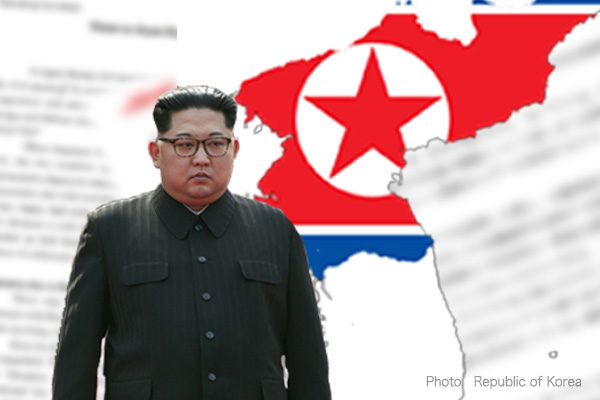Former U.S. President Donald Trump in his acceptance speech of his presidential nomination at the National Republican Convention on July 18 said: “I got along very well [with] North Korea’s Kim Jong Un. It is nice to get along with someone that has a lot of nuclear weapons.” On July 23, North Korea’s state-run Korean Central News Agency issued a commentary expressing a position of distancing Pyongyang from Trump, saying, “The foreign policy of a state and personal feelings must be strictly distinguished.”
The Kim Jong Un regime strongly hopes that Trump will win the U.S. presidential election. Therefore, the KCNA commentary should be interpreted as a jab for requesting certain concessions in the event of Trump’s comeback to the presidency.
Pyongyang’s secret contacts with Trump
“Due to the serious strategic mistakes of the successive administrations, the era has come when the United States should really worry about its security,” said the commentary in conclusion. “No matter what rhetoric like dialogue and negotiations it may let loose while frequently staging frantic war rehearsals for aggression foreseeing the nuclear operation by dispatching nuclear strategic assets regardless of the time and reinforcing the ultra-modern weapons and equipment, can we believe it?”
The commentary thus called for an end to U.S.-South Korean military exercises, remembering that then U.S. President Trump promised to cancel military exercises by U.S. forces in South Korea at the first U.S.-North Korea summit in Singapore in 2018.
The reason why North Korea since then has put off a nuclear test that is necessary for military technology development purposes is that Kim Jong Un has ordered no nuclear test be conducted until the possibility of Trump’s return to power becomes zero, according to several sources. Kim intends to hold a summit meeting at an early date if Trump becomes president again and tell him that the North Korean leader has kept his promise to refrain from conducting a nuclear test. Since last year, Pyongyang has already been in contact with the Trump side through two channels, one in Southeast Asia and the other in New York, the sources said.
Pyongyang is said to have asked the Trump side to partially lift U.N. sanctions in exchange for a freeze on nuclear weapon production and a moratorium on nuclear tests and missile launches. The proposal is identical with what went close to a deal at the second bilateral summit in Hanoi in 2019. the author was told that if a second Trump administration accepts the proposal, Pyongyang intends to move on Japan-North Korea relations shortly after the deal and get a large amount of money from Japan, using the return of Japanese abductees as a card.
Early U.S.-North Korea summit is possible
The policy of Japan’s Fumio Kishida administration of placing the abduction as a humanitarian issue and separating it from the nuclear and missile issues to win the return of surviving abductees in exchange for humanitarian aid and the lifting of Japan’s own sanctions on North Korea has elicited a certain positive response from the Kim regime that does not consider negotiating with the U.S. Biden administration. However, secret negotiations over Kishida’s possible visit to Pyongyang through multiple channels in February and March ran aground for some unknown reasons. The North will not move on its relations with Japan or the U.S. until the results of the U.S. presidential election in November come out.
If Vice President Kamala Harris, de facto Democratic successor to President Joe Biden, wins in November, negotiations between the U.S. and North Korea will not proceed, consequently, Kishida’s policy of prioritizing the abduction issue is likely to take effect again. On the other hand, if Trump wins, the U.S.-North Korea summit is likely to be held early next year. On that occasion, major issues related to the foundation of the Japan-U.S. alliance will emerge, including whether Trump will press for a resolution of the abduction issue as he did at the Hanoi summit, and whether the nuclear issue will reach a deal in a manner to protect Japan’s security interest. Japan should prepare for any outcome from now.
Tsutomu Nishioka is a senior fellow and a Planning Committee member at the Japan Institute for National Fundamentals and a specially-appointed professor at Reitaku University. He covers South and North Koreas.


